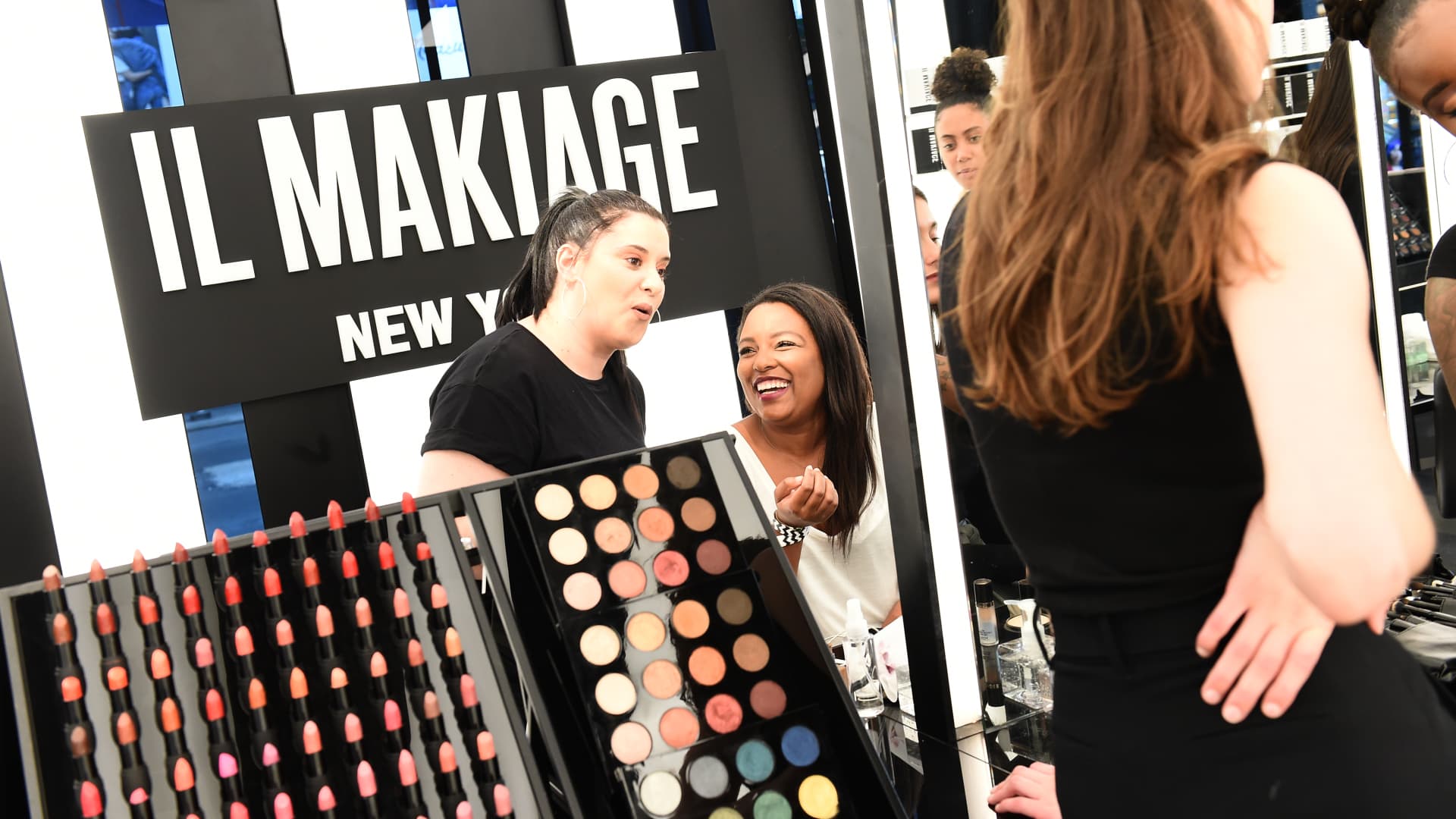Beauty and tech company Oddity, which runs the Il Makiage and Spoiled Child brands, filed to go public Friday as the once-frozen IPO market warms up.
The Israel-based company plans to trade on the Nasdaq using the ticker ODD. The company didn’t immediately disclose how the offering would be priced in regulatory filings and declined comment when asked when the numbers would be released.
Launched in 2018 by brother and sister duo Oran Holtzman and Shiran Holtzman-Erel, Oddity uses data and AI to develop brands and make tailored product recommendations for customers.
In the three months that ended March 31, the company saw $165.65 million in revenue, up from $90.41 million in the year-ago period. It reported a net income of $19.59 million, or $5.34 a share, compared to $3.01 million, or 82 cents a share, a year earlier.
Numbers revealed in its regulatory filing shows the direct to consumer retailer has been profitable on an annual basis since at least 2020.
In fiscal 2022, Oddity brought in $324.52 million in sales and saw a net income of $21.73 million, or $5.94 a share. In the year prior, the retailer saw $222.56 million in revenue and a net income of $13.92 million, or $4.01 a share.
In 2020, it saw $110.64 million in sales and a net income of $11.71 million, or $3.45 a share.
During an interview earlier this year, the company’s global chief financial officer, Lindsay Drucker Mann, a former Goldman Sachs executive, told CNBC that Oddity is making money and growing – even against a tough macroeconomic environment that has proven increasingly risky for purely digital retailers.
At the time, Oddity shared its financial metrics with CNBC. Since its U.S. launch, it has achieved profitability and brought in $395 million in gross revenue and $500 million in sales in 2022, it has said.
On average, Oddity’s gross sales have doubled each year since 2018, the company has said.
In Spoiled Child’s first year on the market, the new brand brought in $48 million in gross sales, which does not include returns.
The business is seeking to disrupt a market long dominated by legacy retailers by replacing the in-store experience with product recommendations driven by artificial intelligence and data.
At the heart of its business model is its proprietary technology — including tech developed by a former Israeli defense official — and the billions of data points it has collected from its millions of users.
Beyond developing new products and brands, Oddity is also trying to make beauty products more effective, the company has said.
In late April, it announced it was investing more than $100 million to acquire biotech startup Revela and open a U.S.-based lab.
The merger brought to Oddity a team of scientists tasked with creating brand-new molecules, using artificial intelligence, that can be used in its cosmetics brands and future lines.
In 2021, Oddity acquired Voyage81, a deep tech AI-based computational imaging startup founded in 2019 by Niv Price, the former head of research and development for one of the Israeli Defense Forces’ elite technological units, along with Dr. Boaz Arad, Dr. Rafi Gidron and Omer Shwartz.
The technology is capable of mapping and analyzing skin and hair features, detecting facial blood flows, and creating melanin and hemoglobin maps using a regular smartphone camera.
The filing comes after a year and a half of a drought in the initial public offering market, which is just beginning to open up and show signs of green shoots.
Earlier this month, Mediterranean restaurant chain Cava went public, and its shares soared as much as 117% in its market debut.
“[In 2022] investors didn’t want to go anywhere near IPOs but now that they’re making money again, and with issuers seeing that they can achieve close to decent valuations, I think that’s bringing the people back into the market,” said Matt Kennedy, a senior IPO market strategist for Renaissance Capital.
“The consumer sector does lend itself to these periods where investors can see a business model that they understand, a business that they might be familiar with and also one that is typically profitable or near profitable, preferably that has growth.”

